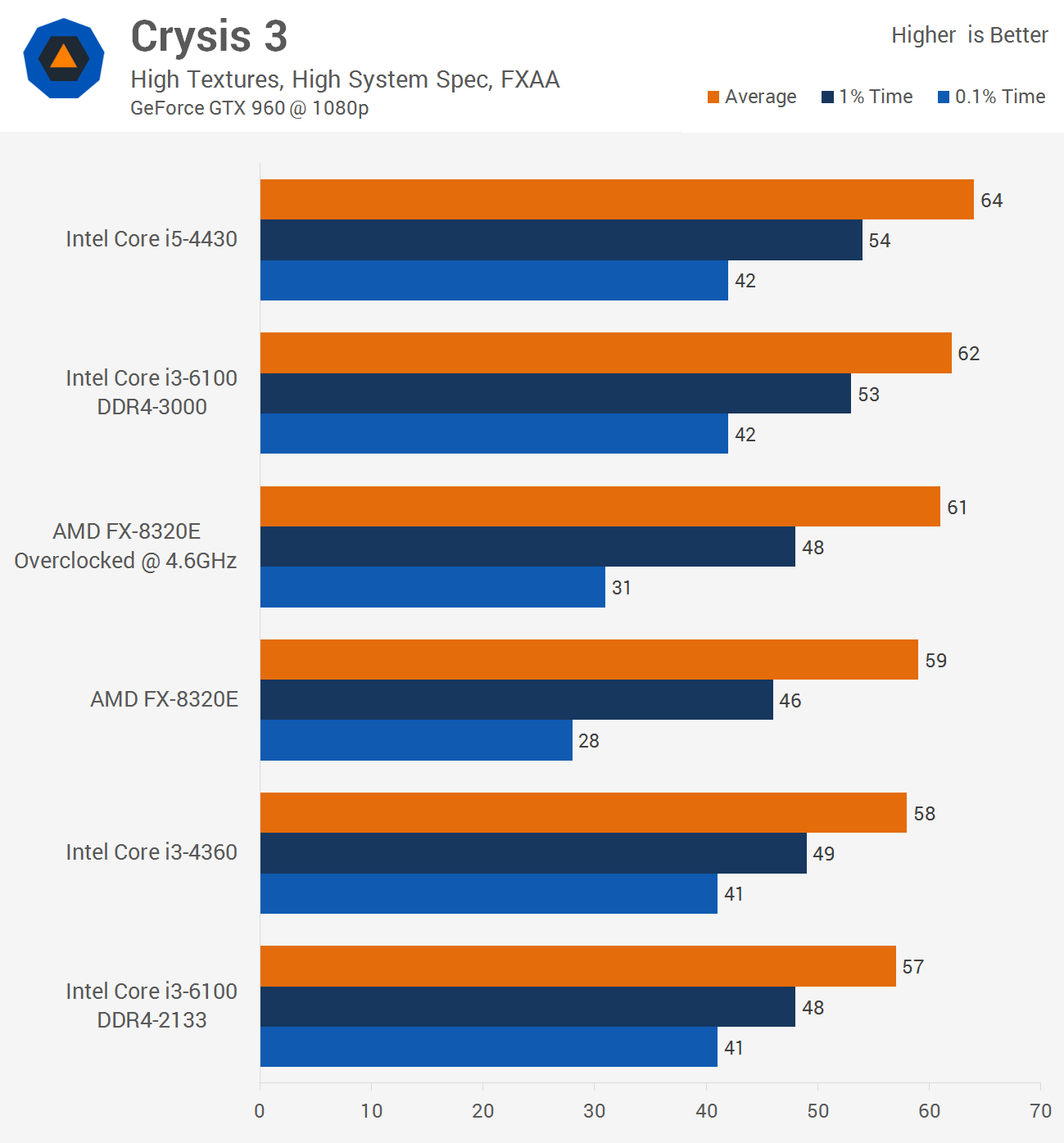- Going from quad core to dual core = going backwards
There's nothing special about core count, it's just one of many factors that determine performance. Refusing to buy a dual core CPU is like refusing to buy a CPU that runs at less than 4Ghz.
- Benchmarks are made with no background tasks. In practice when there are background tasks (inlcuding Windows ones) FX-8350 offers much smoother experience when gaming
Most tasks don't use any significant resources when they're in the background, certainly all of the default windows ones do not. Do you have anything more concrete on that?
- i3 is easily maxed out with current software where FX-8350 have much more power in reserve for future
The FX-8350 is celebrating it's fourth birthday today and as you say yourself it's just a few months from being replaced. If game developers were going to optimise for it then they would have done so by now. Expecting any more performance from it at this point is highly speculative (I.e. unlikely).
- For anything more serious use (for example virtual machines are very useful) FX-8350 is much better
Anything more serious? If you peruse the Anandtech review above you'll find that it also falls behind the 6100 in many non-gaming uses as well. There are a few applications well suited to it's design, but gaming certainly isn't the only area it falls behind.
If you knew the computer was going to be used for one of the things then it would make sense.
Generally the 6100 has all the incidental benefits too. It's substantially lower power, supports all the new technologies by default, has built in video encoding (quicksync) for streaming games so it's the choice to go for even if the two are similar on performance.
Another option: In couple of weeks AM4 socket and Athlon X4 950 should be available. AM4 offers superior upgrade path to 8 thread/16 core Zen. From i3 there is no good upgrade path (upgrading to quad core CPU is much more expensive choice than buying quad core part instantly).
The trouble with calling an unreleased chip superior is that you're guessing. If it is superior then it's likely to be more expensive, not cheaper and will drop the price of the quad core Intel chips.
A i3 6320 build is within budget aswell, Paired with 8 GB of ddr4 2133. I only require 1 PCIE slot, I have no plans to do SLI again in the future, Though its pretty hard to find a single slot ATX motherboard on scan.
I wouldn't bother with the 6320, the performance difference is minimal. Stick with the 6100 or pay £20-30 extra for the 6400/6500 which are sufficiently faster in some games (30% instead of 6-8%)
But its pretty hard to find a single slot ATX board. I would prefer this size as matx will look tiny in the antec case

Ah, you didn't say it was going in a windowed case and appearances were important. Personally I'd find unfilled PCI (not PCI-Express) slots weren't something I'd want to show off and if I was going to buy a show board it would have slots I might plausibly fill one day (I.e. PCI-E).
I also lost the cooler, Probably not required with the tiny power consumption of the cpu, Ill upgrade to a nicer one later.
Intel's stock cooler isn't particularly quiet at load, but as you say you can easily swap it out after you've tried it for a week or two.
I'd probably buy faster memory myself. DDR4-2666 or DDR4-3000 is just a pound or two more. Unfortunately you do need a Z170 board to take advantage of it (at least until the Kaby lake chipsets release after Christmas) but even if you end up not going for one it's more useful for any future upgrades.


